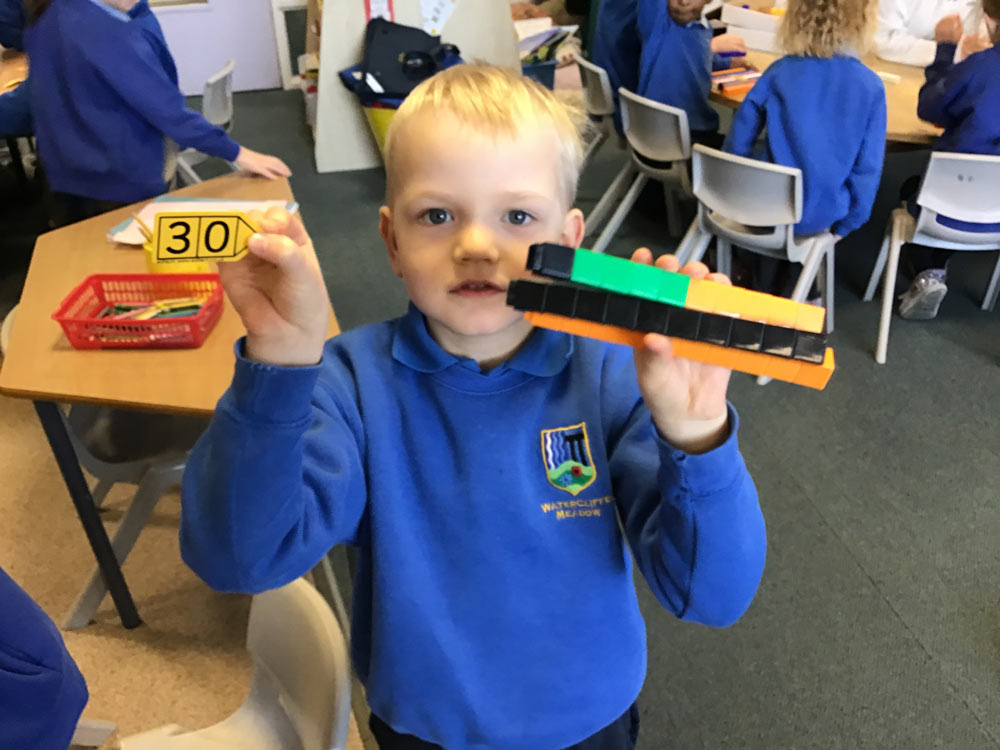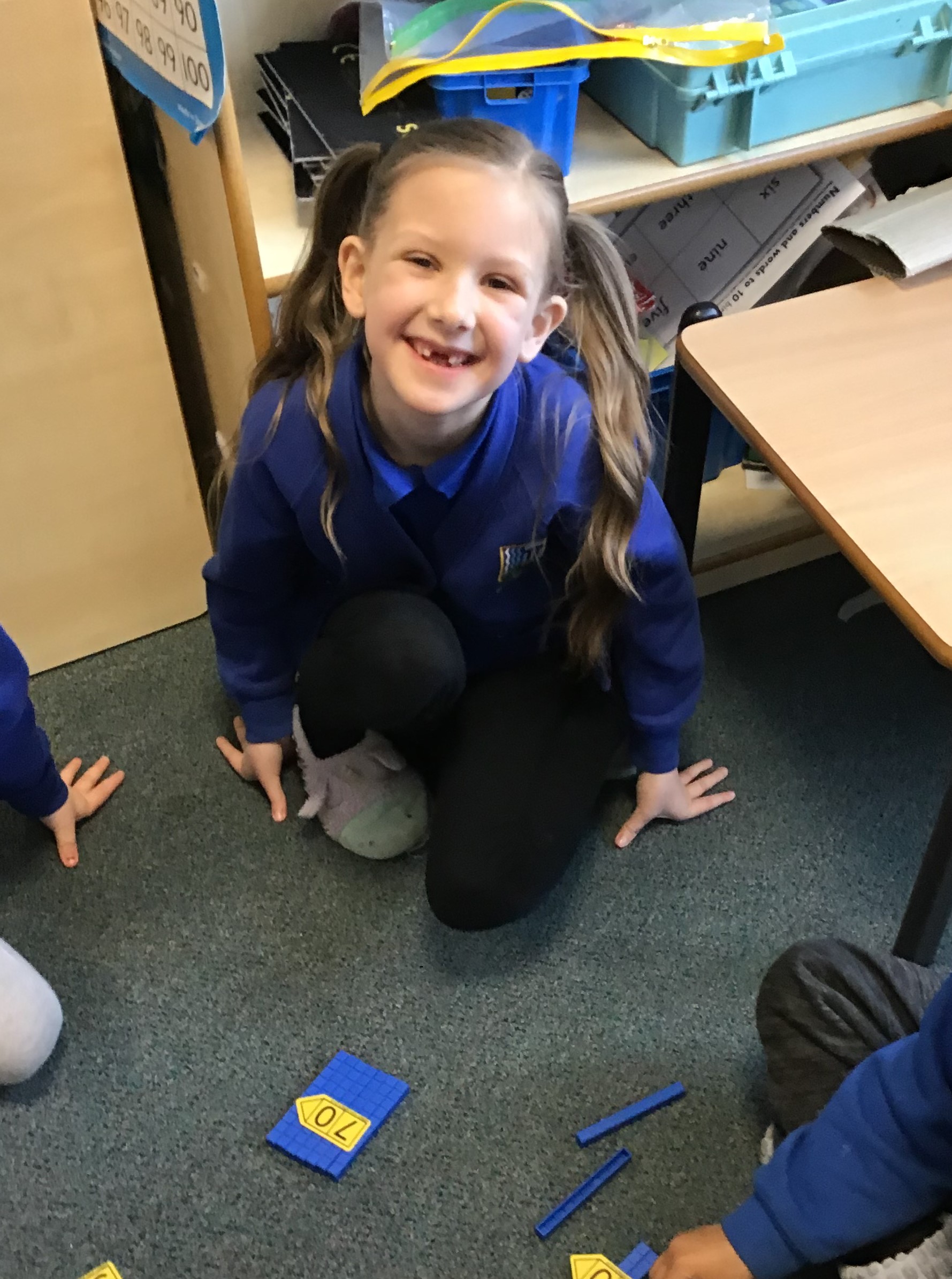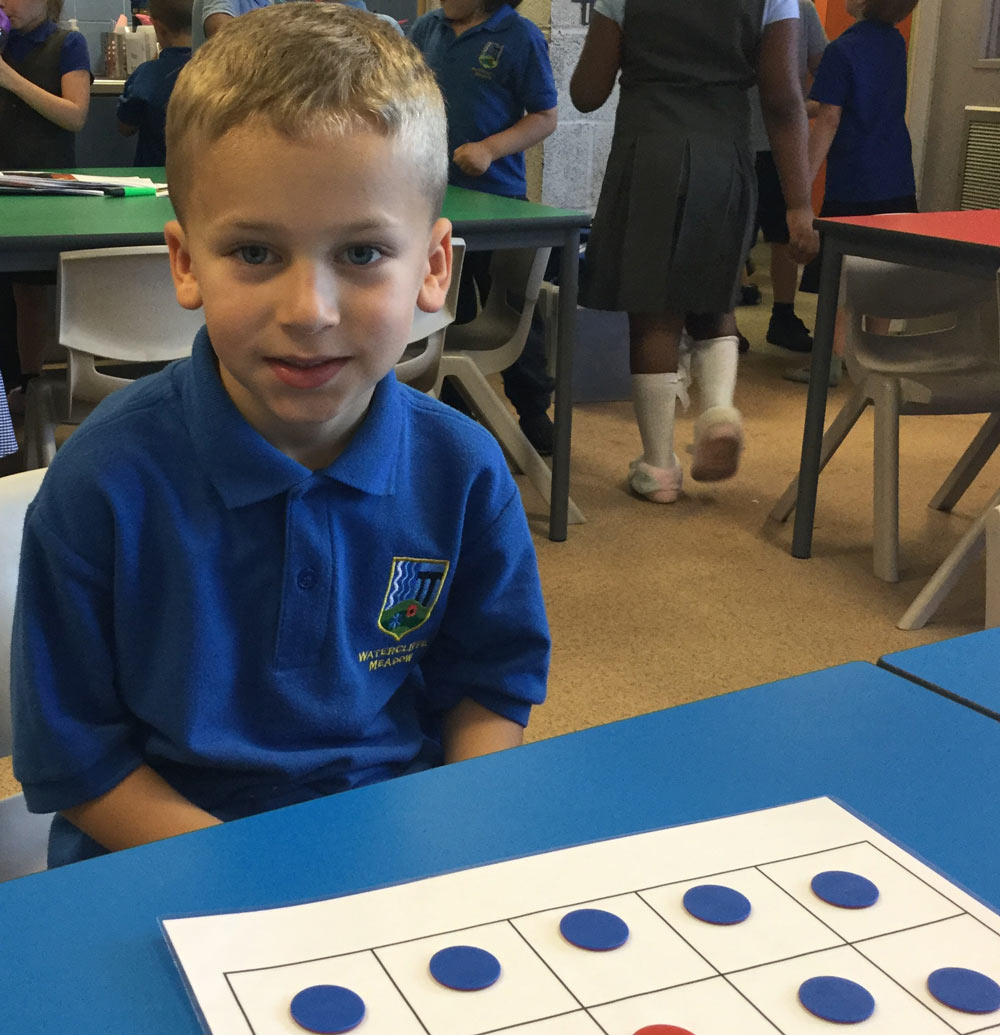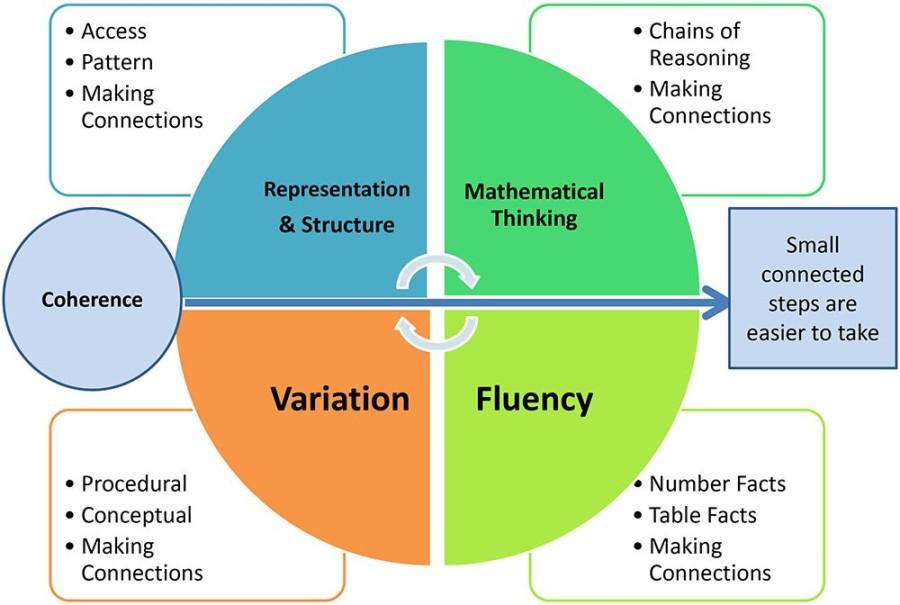
Maths
Intent of Mathematics
At Watercliffe Meadow we aim to foster children’s mathematical understanding and help all children to develop a confident, skilled and resilient approach to all aspects of mathematics.
Whilst being ambitious for our children, we also aim to develop children’s enjoyment of maths from nursery to year 6 and provide opportunities for children to build a conceptual understanding before applying their knowledge to everyday problems and challenges.
Implementation of Mathematics
EYFS
The programme of study for the Foundation stage is set out in the EYFS Framework. Mathematics involves providing children with opportunities to develop and improve their skills in counting, understanding and using numbers, calculating simple addition and subtraction problems; and to describe shape, spaces and measures.
Through school we use a teaching for mastery approach and provide a comprehension progression for all pupils.
Through mathematical talk, children will develop the ability to articulate and discuss their thinking. By the end of Key Stage Two, we strive for every child to leave our school prepared for the next step in their mathematical education.



We strongly believe that it is possible for every child to be good at maths: all that is required is enough practice to develop automaticity in the basics together with a positive attitude towards the subject. Our automaticity is built on from nursery with a clear programme of small steps and daily teaching which allows children to build their knowledge and practise their Key Instant Recall Facts.
Through the teaching of key mathematics skills we enable our children to:
- Learn key facts (KIRFs) to become fluent in the fundamentals of mathematics
- Use methods to build procedural fluency
- Use strategies to solve problems by applying their mathematical understanding and knowledge.
Our teaching is richly supported by the use of pictorial and concrete resources throughout all year groups before moving to the abstract. Children draw on all three aspects throughout their maths curriculum journey. The mastery-learning model forms the basis for our approach to teaching maths.

To ensure consistent coverage across the school, we use a range of agreed materials and resources to provide age-appropriate tasks for our pupils. We use the White Rose Maths curriculum which is designed to provide students with a solid foundation in mathematics. Within the White Rose Maths schemes of learning, each National Curriculum objective is broken down into small-step learning which strengthens fluency, reasoning and problem solving.
We are actively engaged in staff development through the South Yorkshire Maths Hub. The Maths Hub programme is supported by the National Centre for Excellence in Teaching Mathematics and funded by the DfE.
Fluency in maths means that children have a solid foundation of basic skills that they understand and use in different contexts to find the best way to solve a maths problem. Making connections between (and among) mathematical areas is dependent on children having strong number sense and trust that they can depend on the natural skills that they have learned.
In order to ensure pupils retain knowledge of key facts and have the chance to continually practise key skills and procedures, we deliver a daily Big Maths session. The Big Maths element of our maths teaching provides children at Watercliffe Meadow with a programme of small step knowledge in mastering fluency of number and the opportunities to remember and practise key skills in maths. We deliver this in addition to our daily curriculum maths lessons.
Through the Big Maths sessions, the Key Instant Recall Facts are taught in a series of small steps. Using formative assessment, teachers will ensure that areas of learning are retaught or over taught and recall of key facts from previous years are revisited before topics.
We engineer success by filling gaps in knowledge as soon as possible. Quality first teaching and same day marking allows gaps in knowledge and misconceptions to be picked up quickly and addressed.
Impact of Mathematics
Assessment is continual and ongoing and informs future teaching, building a picture of the children’s attainment and progress over time.
Weekly assessment tests allow for formative assessment and intervention. This is monitored to ensure success, and is communicated with home so children can further practise skills as part of home learning.
Teacher assessment points take place twice yearly in all year groups. In year 2 and year 6, the children undertake standardised assessment tests (SATs) during the summer term.
Times Tables
We have formal assessment of times tables knowledge in Year 4. To prepare the children for this the children use Times Tables Rock Stars, regular times table tests and children’s achievements are celebrated each week in assembly. All children from Y3 to Y6 have their own log in to Times Tables Rock Stars.
Supporting Mathematics At Home
All children from Y3 to Y6 have their own learning journal. In this there are key learning facts and mathematical prompts for children and parents to refer to. Children complete a weekly test to practise Key Instant Recall Facts and this is sent home. Children also complete a weekly arithmetic test to ensure that children are building up and retaining their procedural fluency. Areas of development from this test are recorded in children’s learning journals as part of home school communication. Visiting our year group blogs is another way to receive communication about what is happening in curriculum subjects and how you can help your child at home. Newsletters are posted on the blog, at least once a term, with signposting to additional things to support your child.
Websites
- Times Tables Rock Stars
- White Rose 1 minute maths
- BBC Bitesize : Key Stage 1
- BBC Bitesize Key Stage 2
- Top Marks
- Hit The Button

